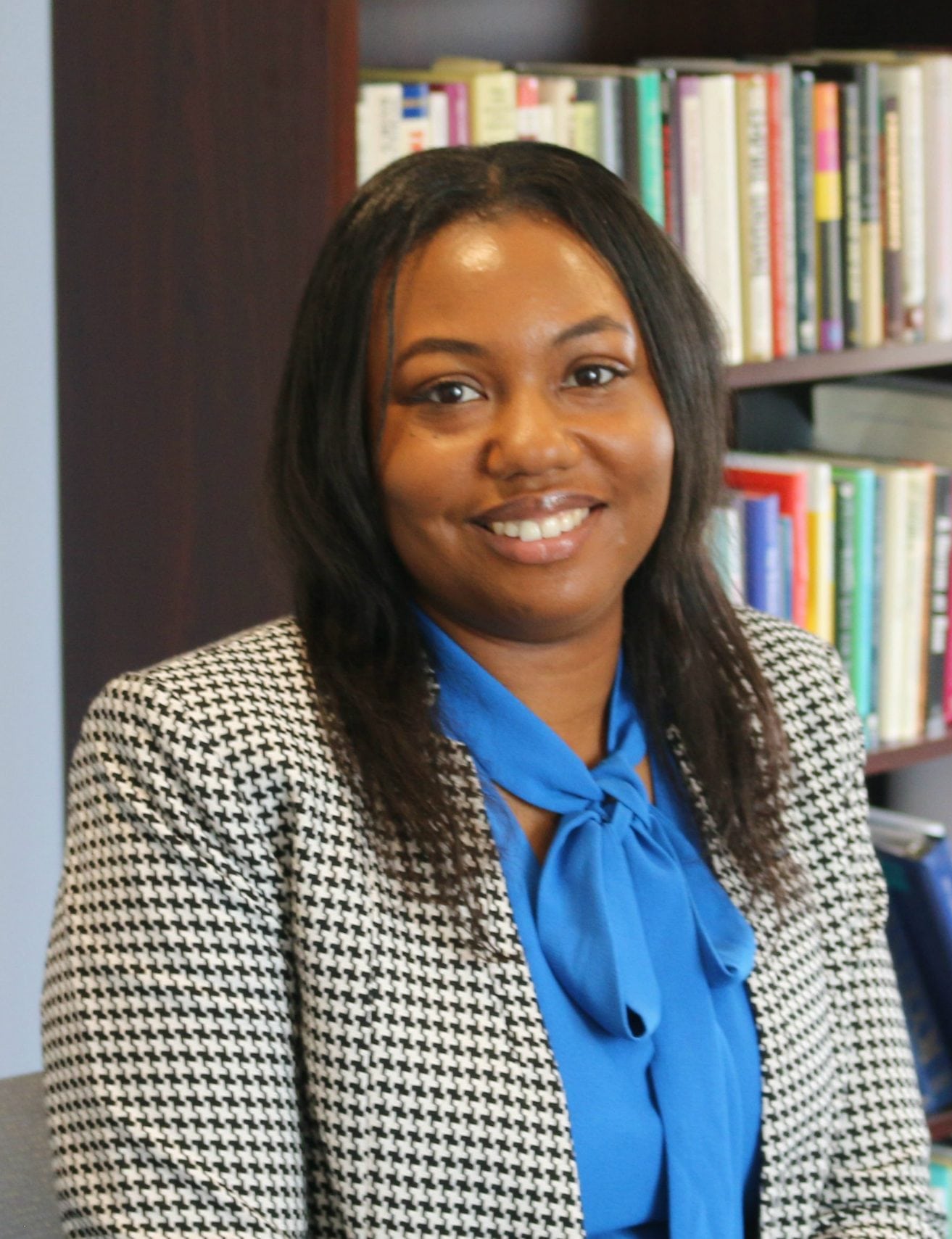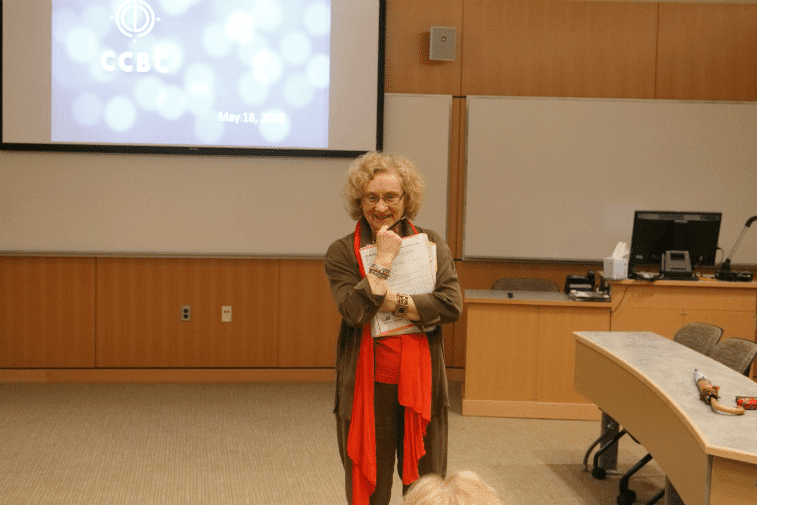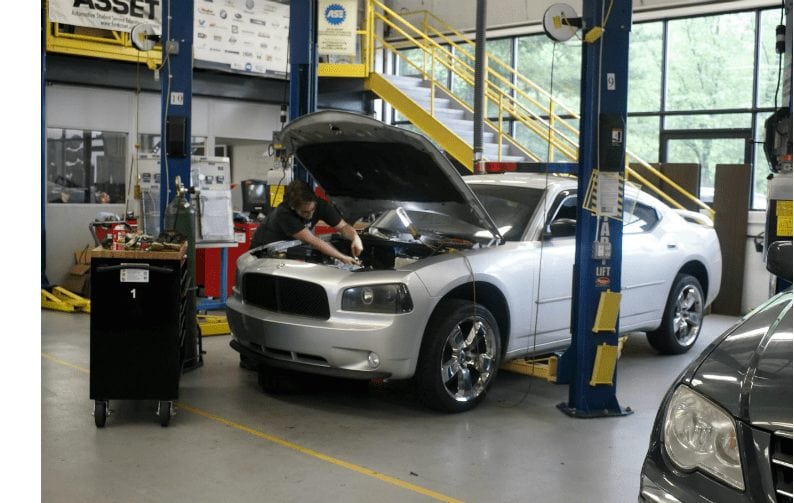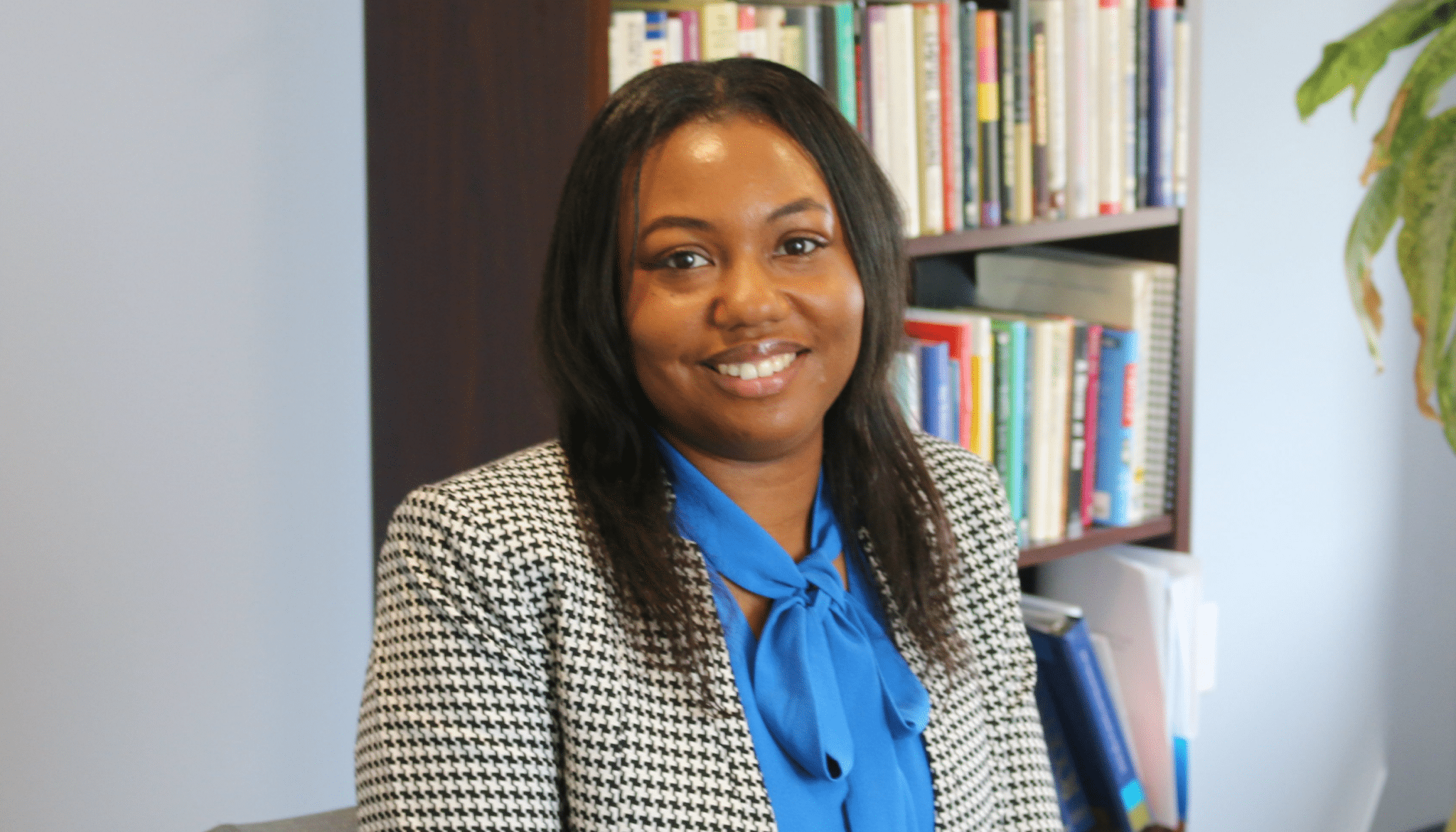
Samaura Stone, Senior Policy Associate
Graduating high school is no longer a guaranteed pathway to a middle-class career. It is projected that in just a few years (by 2020), most jobs will require at least a bachelor’s degree. Years of effective messaging around continuing education, career pathways, and retreating from our previous view of high school as a final destination, has been positively received by students. As a result, nearly, 87 percent of high school students aspire to earn a college degree versus only 40 percent in 1980. However, despite the culture shift and eagerness to pursue a degree, the majority of students still feel unprepared for college and less than 1 in 3 will graduate.
To explore what colleges are doing to strengthen the pipeline between high school and college, AYPF recently visited the Community College of Baltimore County’s (CCBC) Catonsville campus to learn about their efforts to help students make a seamless transition to postsecondary education. CCBC is recognized nationally as a leader in innovative learning. They serve more than 63,000 students each year and offer over 200 degree and certificate programs. CCBC’s mission is to transform lives by providing an accessible, affordable, and high-quality education that prepares students for career success, strengthens the regional workforce, and enriches the community.

Dr. Sandra L. Kurtinitis gives opening remarks
We started the morning with a rousing welcome and remarks by CCBC’s president, Dr. Sandra L. Kurtinitis, followed by equally energetic presentations from program staff. They provided overviews of the various opportunities and programs for students to graduate high school with the confidence and skills needed to be successful in their college and career journeys. Students enrolled in high school programs at CCBC are able to get a head start on college by enrolling in courses and earning college credit for free or at a 50% reduced rate. The college puts a significant focus on establishing meaningful partnerships with the school district, local high schools, and employers. Most programs also have “on-site” options for students to attend college courses taught by CCBC professors at various high schools throughout Baltimore County. Through the Early College Access Program, a partnership between the Baltimore County Public Schools and CCBC, students can simultaneously earn a high school diploma and an Associate of Arts degree in General Studies or up to 60 credits towards a bachelor’s degree.

High school students can take advantage of the following learning opportunities through CCBC:
- Early College Access & BCPS Dual Credit Programs
- Pathways and Technology Early College High School (P-TECH)
- Parallel Enrollment Program (PEP)
- Diploma to Career (D2C) Program
- CTE Career Pathways Partnership Program
- Academic Pathways Program
- Baltimore County College Promise Program

A side view of CCBC’s flight stimulator
We also took a tour of the campus to learn about CCBC’s Career Services and Industry Partnership programs available to all students, which included their impressive Automotive, Mechanical Engineering and Aviation Technology programs. The programs incorporate a lab and experiential learning components, providing students with classroom and hands-on experience, and they offer industry-recognized certifications that allow graduates to enter into well-paying career fields.
I left the campus feeling energized and with these three takeaways:
1. State Leadership Matters
In 2013, Maryland passed the College and Career Readiness and College Completion Act of 2013. The legislation is a comprehensive approach to design new curriculum and change graduation requirements to achieve the goal of having at least 55 percent of the state’s residents between the ages of 25 and 64 hold at least an associate degree by 2025. The new law creates and promotes dual enrollment options, requires high schools and local colleges to create transition courses for high school seniors that are not college ready, established statewide transfer agreements, and provides greater access to community colleges for students at a free or reduced cost.
2. Targeted Student Recruitment and Staffing Makes a Difference
Throughout the presentation, I was struck by how knowledgeable the staff and faculty were about the populations they serve and their overall commitment to students. They are aware of the fact that many students entering their programs have received limited career advising or counseling, rely heavily on financial aid, are the first in their family to complete college or are in need of additional supports and are often working full-time jobs. The staff have used this information to recruit students through structured orientations, transfer events, high school open house days and career services. Additionally, staff have implemented a cohort model in most programs to build community among students and staff are proactive in their own professional development and cross-unit training.
3. Innovation Provides Options
I was nearly overwhelmed by the amount of programs and pathways that high school students have to gain a certificate and/or degree and transfer from CCBC to a 4-year university. Over the years, I have had the chance to work with hundreds of middle and high school students, and I could clearly see an option for each of them that was aligned with their personalities and strengths. Having individualized learning and opportunities to attain a degree through multiple paths is what all students need to increase their confidence and sense of purpose.
CCBC has created an impressive offering of courses and tailored opportunities to prepare high school students and the overall community with the necessary tools to thrive in the current job market. So far, CCBC has seen positive results from their outreach and recruitment to high school students. They had a 92% retention rate for students that attended their New Student Orientation and two or more Pathway events. I hope that more colleges across the country are able to adapt many of their best practices, and I look forward to hearing more about their accomplishments in the coming years.


